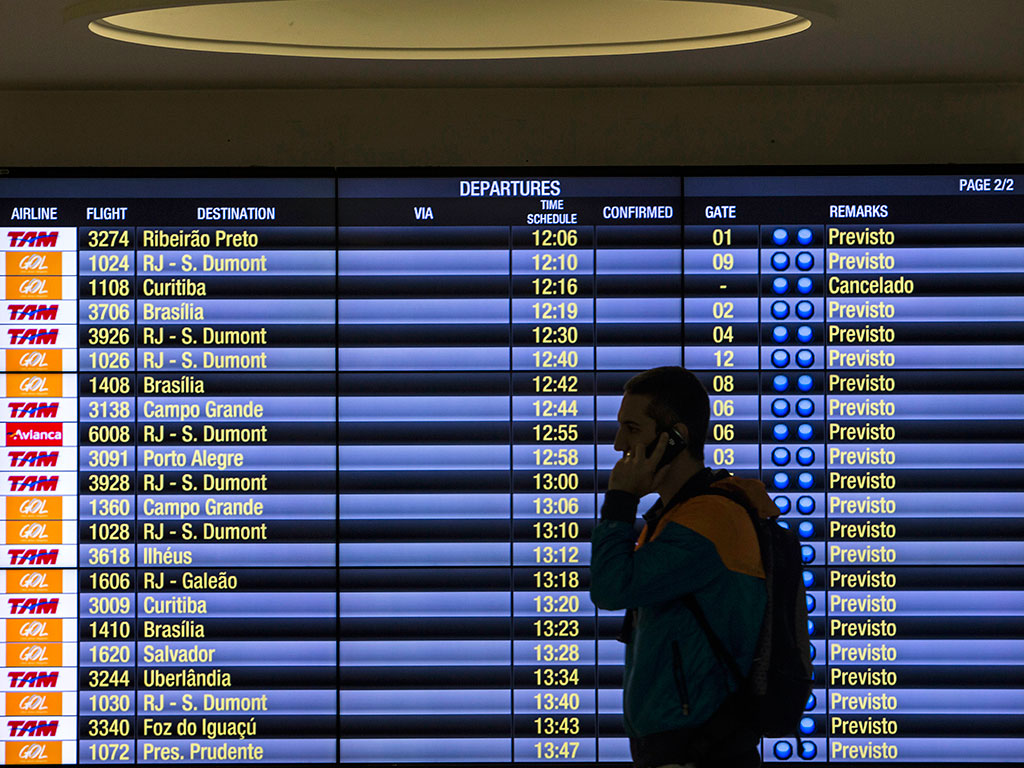Business travel has a problem. As you read this, hundreds of professionals are preparing to enter radio silence as they switch off mobile data for a business trip. In fact, 60 percent of business travellers are cutting themselves off once they touch down on foreign soil.
After lost or stolen luggage, the second biggest bugbear for travellers is a lack of internet connection followed by concerns over unexpected bills and charges. According to research, a quarter of multinational companies have experienced employees racking up sky-high roaming fees in excess of €1,000.
This lack of continuous access to internet, email and the cloud is stopping staff from staying confidently connected and capitalising on new business opportunities.
[B]usiness travellers can be less productive with too much time wasted trying to establish data access that could compromise security
The growth of emerging markets is driving multinational organisations to look further afield for new business opportunities, with global business travel spending expected to exceed $1.12trn over the next few years.
Some business travellers are familiar with the traditional cost/convenience trade-off when using mobile communications abroad: either they accept the higher charges and work as they would in their own country or they compromise their productivity by adopting an array of different cost-saving measures and workarounds.
A third of enterprises now encourage employees to keep mobile device usage to a minimum while working abroad, causing employees to rely on unsecure Wi-Fi hotspots or even forgo their usual phone number by using a local SIM card. The result is that business travellers can be less productive with too much time wasted trying to establish data access that could compromise security.
Employees need access to wired, wireless and cloud capabilities to be confidently connected in their world and they need to do this without worrying about unexpected charges, added complexity or security risks.
To achieve all of this, organisations need total communications services providers to sidestep the communications challenges of travelling to emerging markets and eliminate the stress of working overseas.
Borderless business
International borders are no longer the barriers to business they once were and the enterprise telecommunications infrastructure needs to reflect this. Take the employee travelling to meet a new supplier or explore a partnership. He needs the connectivity to send and receive emails at the airport, in the taxi and between meetings. He may need to view and edit documents in the cloud to tweak presentations or prevent approval bottlenecks from building up at the office. There may also be a number of enterprise applications, such as payment handling, that he needs access to in order to do his job.
He might also need GPS navigation to locate hotels and offices; he might need to dial in to remote meetings using voice and video or he may simply have family and friends maintaining contact through social networks and instant messaging.
He needs access to all of this from the moment he steps off the plane.
50 percent of large enterprises do not know how many devices have been issued or what their status is
Hitting turbulence
The problem is that employees may not know what they are doing wrong. Either they switch roaming off, making them hard to contact and unproductive, or they roam without knowing whether or not they are on a cost-effective plan.
This doesn’t help the Chief Information Officer, who may have little real time visibility over the mobile estate or roaming spend being racked up by employees. Research suggests that 50 percent of large enterprises do not know how many devices have been issued or what their status is, which makes it hard to predict and budget for communications costs.
Reaching altitude
Employees need to connect to the mobile network without worrying which country they are in. They also need the support of an end-to-end total communications supplier to achieve this in a way that doesn’t break the bank and gives the CIO a clear picture of how and where telecommunications budgets are being spent. It means self-optimising plans that ensure employees are on the best tariffs; data bundles that enable employees to share data across devices; innovative tariffs that allow employees to use their home allowance when abroad and apps that give global visibility of data usage and warnings when thresholds are reached.
Working with suppliers to create and implement these kind of innovative communications agreements not only creates more productive and less stressed employees but it puts businesses on the front foot to compete on the global stage.





